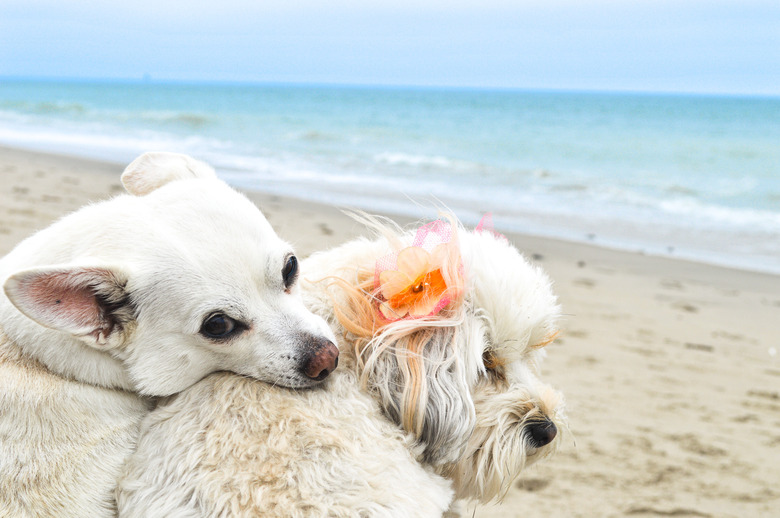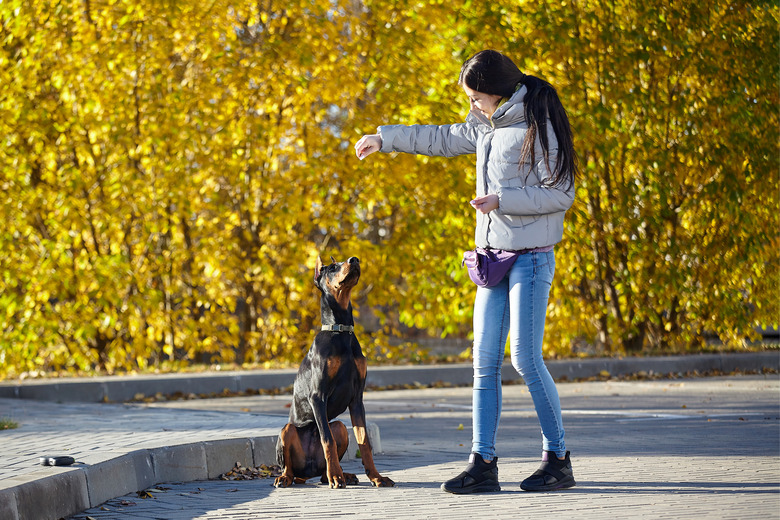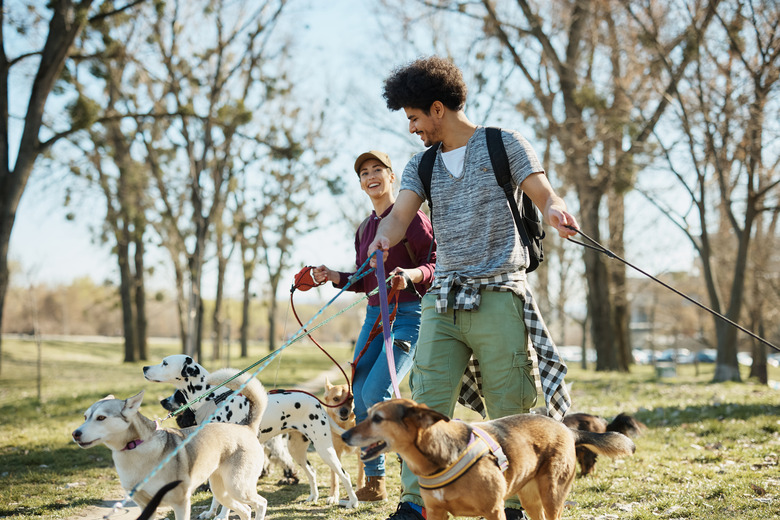How Good Is A Dog's Memory?
As people, so much of our life experience is based upon memories — good ones, bad ones, necessary memories, and maybe even just a passing thought that brings up feelings of nostalgia. Any dog owner who's had more than one pet can remember the ones that came before their current companion, but can our dogs remember their previous owners? Canines can certainly tell when they're being taken to someplace fun, like a park, versus someplace not ideal, like the vet, so they must remember some things, but how much? That answer will, of course, depend on your dog, and also requires an understanding of different types of memory and how they may relate to a dog's perception of the world.
Dogs have different types of memory
Dogs have different types of memory
Memories may all feel the same, but there are four different categories under which dog memory is classified: short-term, long-term, associative, and episodic. Short-term memory refers to anything stored in a person's memory for a relatively short amount of time, from a matter of minutes to a few days, but not longer. Dogs have an incredibly brief short-term memory span lasting about two minutes. Long-term memory refers to information stored for an extended period of time, like months or years. For dogs, this can look like frequently used commands, like "sit," or "come," or even where their home is.
Associative memory is similar to conditioning in that it requires an association to be made in order to reach a conclusion. For example, if you drag out the same suitcase to pack for a trip, your dog might associate this suitcase with being left with a sitter or boarded in a kennel for a few days, and will react according to how that makes him feel. Episodic memories form around a time and place in the past, and anyone who's seen a dog find a french fry on the ground only to frantically pull to the corner it happened on for the next three years has witnessed an episodic memory.
Proof of memory in dogs
Proof of memory in dogs
Any dog owner can likely think back on a time when they noticed their dog remembering something, be that where their leash is kept, or even a person they haven't seen in a while. One study shows that episodic memory in dogs has been measured even so long as 24 hours after the event happened. In a 2016 study published in Current Biology, researchers used the "Do as I Do" method to see whether 18 dogs could remember what they had seen their owners do, and measured the ability to imitate in increments of one minute and one hour.
In the study, the dogs watched their owners do a variety of simple things, like placing their foot onto a step. Then, the owner would tell their dog "do it," to see if they would imitate the behavior. Unlike training, which should include paying your dog a reward, like a treat, for accomplishing a command, these dogs were told to lie down regardless of whether they successfully imitated the motion they just saw. Still, many dogs surveyed did replicate the behavior, although the success rate of imitation decreased over time as episodic memory does diminish quicker than other types. This shows that many dogs are not only watching our moves, but do possess the capacity to remember and imitate them as well.
Memory games for dogs
Memory games for dogs
Building your dog's capacity to remember things better is not only a great way for the two of you to bond, it can also make them smarter and have higher self-esteem, and this can be easily done by adding memory games to your routine. Food puzzles, shuffle mat toys, and agility courses are great ways to enrich a dog's life by challenging them to use their mind in order to complete a task, which should come filled with rewards once successfully completed.
Simpler games, like hide and seek, either with you or using a favorite toy or treat, can encourage a dog to think on their feet and rely on their sense of smell to find the target. A great way to have a dog build associative memory is to use the tone of your voice to indicate whether they are close (excited tone) or not close (calm tone) to the object.


